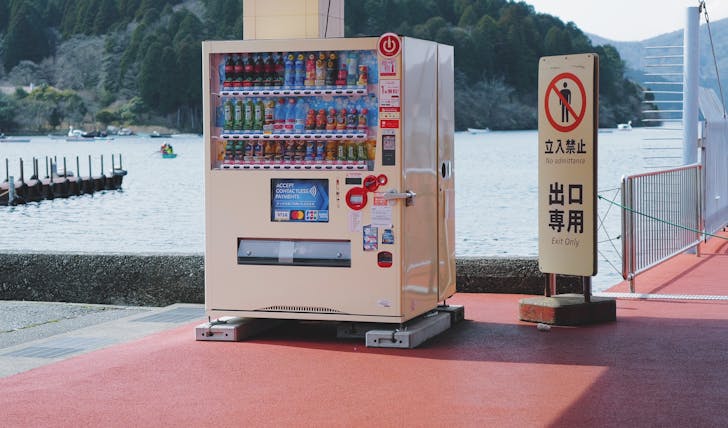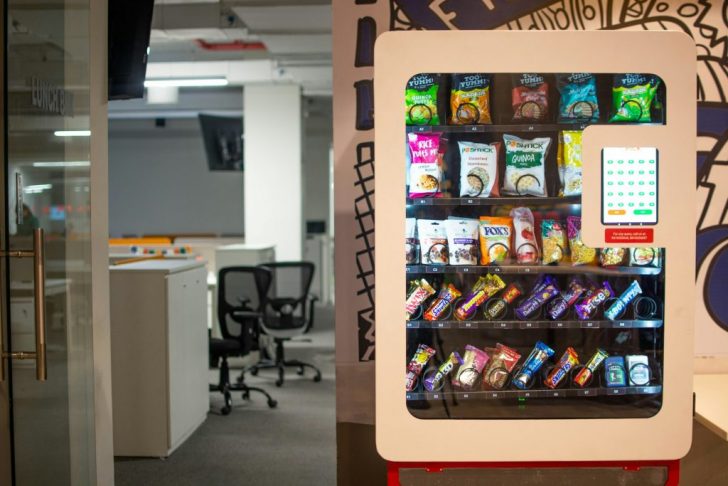Are you thinking about diving into the world of vending machines? Whether it is the charm of passive income, the simplicity of the business model, or the relatively low startup costs, learning how to start a vending machine business can be an exciting venture.
The vending machine industry offers an appealing avenue for entrepreneurs. It is a sector where you can earn money around the clock without being physically present.

The business model is straightforward: You buy or lease vending machines, stock them with goods, and place them in strategic locations. The machines do the selling for you. They collect money from customers who pay for the convenience of on-the-go snacks, drinks, or even electronics.
How to Start A Vending Machine Business?
The first step in understanding how to start a vending machine business is thorough research and planning. This phase involves analyzing the market, understanding the preferences of your potential customers, and identifying lucrative locations. Look for high-traffic areas like schools, office buildings, and malls.

Creating a detailed business plan is crucial. This plan should outline your business objectives, budget, potential locations, product offerings, and growth strategy. Also, consider how many machines you can afford to start with and how you will finance them: Through savings, loans, or perhaps a partnership.
Decide on Your Products and Machines
Choosing the right products is vital for the success of your vending machine business. The best products depend on your target audience and location. For instance, healthy snacks and drinks might be more popular in a gym or office setting, while candies and sodas could sell better in schools or entertainment venues.
When selecting machines, consider the type of products you plan to sell. Will you need refrigerated units for cold drinks or perishable items, or standard machines for snacks and non-perishable goods?
Secure Your Locations
Your business’s profitability largely depends on where you place your machines. When negotiating with property owners or managers, be prepared to explain the benefits of having your vending machine on their premises, such as increased convenience for employees and customers.
Sometimes, you might need to pay a rental fee or offer a percentage of your earnings to secure a prime spot. Ensure these costs are factored into your business plan to maintain profitability.
Stock & Service Your Machines
Once your machines are in place, it is time to stock and start servicing them. Efficient stocking is essential to keep your products fresh and your customers happy. Regular visits to your machines will help you monitor which items sell best and what might need changing.

Servicing also includes maintaining the machines to ensure they are clean and in good working order. A well-maintained machine is less likely to break down and will continue to generate income reliably.
Monitor, Optimize & Expand
The final step in learning how to start a vending machine business* involves monitoring your operations, optimizing your offerings, and planning for expansion. Use sales data to understand consumer behavior and adjust your product offerings accordingly. If certain items are not selling, replace them with something more appealing.
As your business grows stable, consider expanding by adding more machines or exploring new locations. Each new machine increases your potential earnings and spreads your risk across different sites and products.





